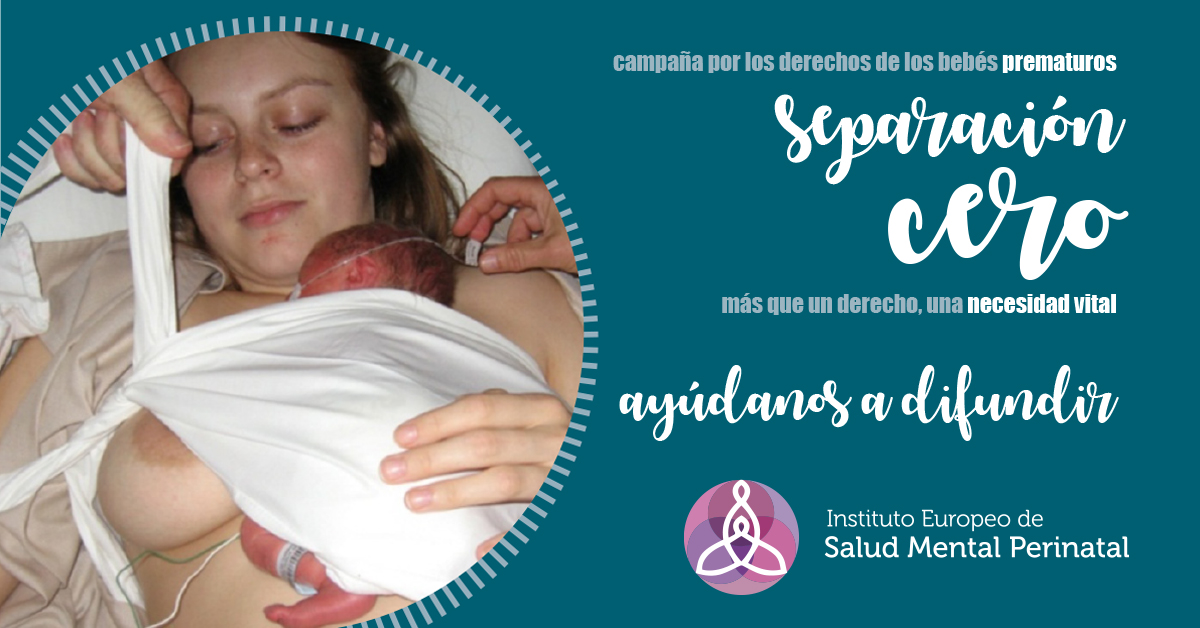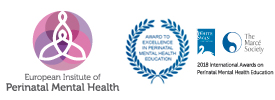
- The term “Zero Separation,” coined by Dr. Nils Bergman, refers to minimizing or eliminating any unnecessary separation between the mother and the baby immediately after birth and for as long as possible, even in the case of premature and very premature babies.
- On the occasion of World Prematurity Day, the European Institute of Perinatal Mental Health will launch a campaign to raise awareness about the importance of not separating premature babies from their mothers after birth.
On November 17th, World Prematurity Day is celebrated, an occasion that the European Institute of Perinatal Mental Health (IESMP, its acronym in Spanish) aims to use to launch an awareness campaign. The campaign serves as a reminder that ‘Zero Separation’ is an urgent need for premature babies to protect their health and increase their chances of survival. To achieve this, it is essential to raise awareness about the importance of training healthcare professionals, providing resources to healthcare systems, and developing policies that ensure the rights of babies and their families.
A vital necessity
The philosophy and approach of “Zero Separation” were developed by Dr. Nils Bergman, a swedish doctor known for his work over the past two decades in the field of maternal and child health, particularly in the care of newborns and premature babies. The term “Zero Separation” refers to minimizing or eliminating any unnecessary separation between the mother (or family members, in case it is not possible with her) and the baby immediately after birth and for as long as possible. This helps regulate the baby’s temperature, stabilize their heart rate and breathing, promote breastfeeding, and strengthen the emotional bond.
For Carmela Baeza, a physician, IBCLC (International Board Certified Lactation Consultant), and coordinator of Breastfeeding and Mental Health Training at IESMP, it is crucial that “Zero Separation” becomes a reality. She emphasizes that the current practices for premature baby care, such as separating the mother from the baby and placing the baby in an incubator or allowing skin-to-skin contact only for a few hours a day, yield poorer outcomes. She explains, “More babies die in incubators, and they may face more emotional difficulties. It sounds harsh to say, but ‘Zero Separation’ saves lives; that’s why we need to change the place of care, not the care itself.”
Babies have a profound need to be close to their mothers or caregivers, and this closeness is essential for their physical and emotional well-being. Various studies suggest that mother-infant separation is unnecessary in most in clinical situations, including cases involving premature, very premature, or low birth weight babies. A 2016 Cochrane review found a 40% reduction in mortality among babies weighing less than 2,000 grams who received Kangaroo Mother Care compared to conventional incubator care. However, most studies in this review initiated skin-to-skin contact once babies were stabilized, potentially excluding those who did not survive to reach that stability. In higher-income settings, improvements in physiological stability and health of premature babies were observed with immediate skin-to-skin care compared to incubator care.
The Immediate Skin-to-Skin Contact Between Parents and Children Study (IPISTOSS), initiated in Scandinavia in 2020 and still ongoing, has already followed 150 unstable premature babies born between gestational weeks 28+0 to 32+6. Its aim is to investigate the effect of immediate skin-to-skin contact initiated right after birth, focusing on cardiorespiratory stability, as well as other aspects such as the health and development of the babies and the experience of the parents.
Toward a Paradigm Shift
According to data from the World Health Organization (WHO), around 13.4 million babies are born prematurely each year. Of them, approximately 900,000 infants die due to complications arising from childbirth, and almost half of these deaths occur within the first 24 hours, before fragile newborns admitted to neonatal units can achieve stability. Aware of the need for a profound change in premature care, on November 15, 2022, the WHO release guidelines with new recommendations for the care of premature or low birth weight babies. These include immediate skin-to-skin contact to enhance the survival of these infants.
“Nothing the baby does or doesn’t do makes sense except on the mother’s body,” notes Nils Bergman, for whom separation is a 20th-century paradigm that needs to be questioned and modified to reduce the mortality of premature babies and improve the experience for both mother and baby. According to Dr. Carmela Baeza, changing the separation paradigm requires several actions. Firstly, understanding the scientific data supporting this paradigm shift is crucial. “Healthcare professionals and families alike must be certain that immediate skin-to-skin contact and zero separation are the standards for care for their premature infants,” she emphasizes. Secondly, according to the expert, professional training is essential to implement this change. Lastly, there is a need for neonatal intensive care units (NICUs) to open up and move towards the creation of Mother-Baby Intensive Care Units: “We need to open up the space in neonatal units to families, working together and truly letting the mother be the center of care.”
In all countries, for all babies
“The best way to care for newborns with low birth weight, even in high-income countries, is through continuous skin-to-skin contact with the mother, in a mother-newborn care unit that provides care and medical treatment for both,” stated Dr. Bjorn Westrup, from the Karolinska Institute in Sweden and technical expert on the new WHO guidelines for premature care recommendations.
From IESMP, Baeza emphasizes that it is crucial for “Zero Separation” to become a reality for all babies because mother-baby separation has negative effects on many levels. This includes a higher risk of mortality and infections, as demonstrated by research led by Nils Bergman’s team, and a risk of developing toxic stress, which has significant lifelong effects, both physically and psychologically. “While there may be cases where immediate skin-to-skin contact is not possible due to the severity of the mother’s or baby’s condition, kangaroo mother care should be implemented as soon as possible. The more premature or sick the baby is, the greater the risks of separation,” she concludes.







